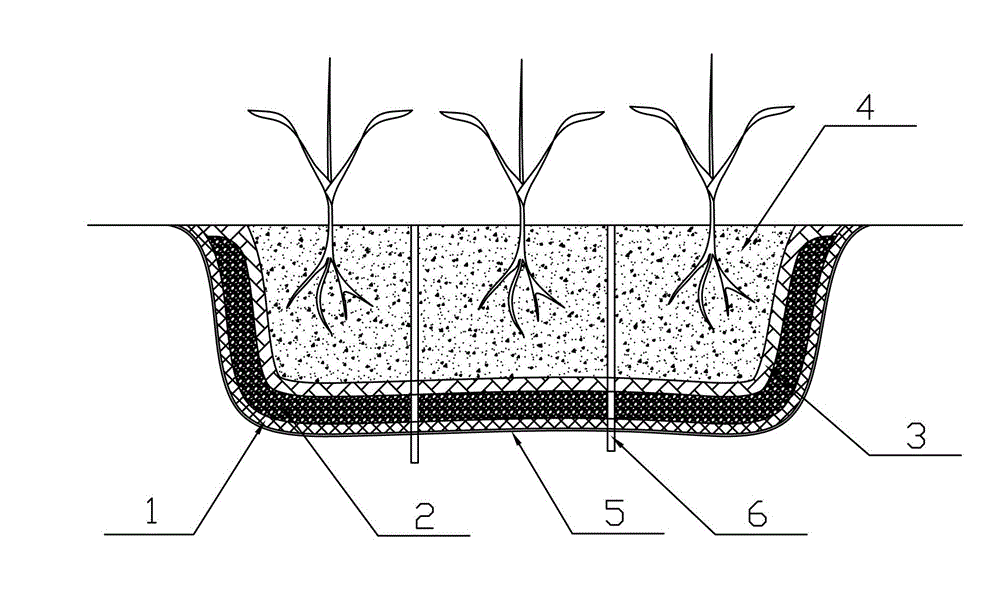Method for in situ restoration of petroleum pollution through combination of pioneer plants on tidal bank and clam worms
A pioneering plant, in-situ repair technology, applied in the field of oil pollution repair, to achieve the effect of fast degradation, improved landscape, and high survival
- Summary
- Abstract
- Description
- Claims
- Application Information
AI Technical Summary
Problems solved by technology
Method used
Image
Examples
Embodiment approach 1
[0047] Embodiment 1: The method for in-situ remediation of oil pollution by pioneer plants and clamworms on this tidal flat includes the following steps:
[0048]1) Build a processing unit: such as figure 1 As shown, according to the size and depth of the oil pollution, dig out the oil pollution, mix it with soil, coal cinder, sandstone or other readily available solid materials to form high-oil soil, put it aside for later use, and form when digging oil pollution In the pit, first spread the grass felt layer 1 or the oil-absorbing paper layer, then spread the high oil soil layer 2 on the grass felt layer 1, then spread the straw layer 3, and finally fill the soil layer 4 to form One or more repair units.
[0049] A film layer 5 is also provided below the straw felt layer, and the film layer 5 is made of plastic film or oil-absorbing paper. At least one through hole 6 is opened on every square meter of the film layer 5, and the area of the through hole 6 is between 3-5 cm2...
PUM
 Login to View More
Login to View More Abstract
Description
Claims
Application Information
 Login to View More
Login to View More - R&D
- Intellectual Property
- Life Sciences
- Materials
- Tech Scout
- Unparalleled Data Quality
- Higher Quality Content
- 60% Fewer Hallucinations
Browse by: Latest US Patents, China's latest patents, Technical Efficacy Thesaurus, Application Domain, Technology Topic, Popular Technical Reports.
© 2025 PatSnap. All rights reserved.Legal|Privacy policy|Modern Slavery Act Transparency Statement|Sitemap|About US| Contact US: help@patsnap.com

